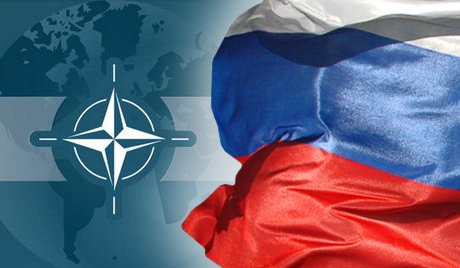NATO has decided to suspend all practical civilian and military cooperation with Russia.
NATO Secretary General Anders Fogh Rasmussen said Russia’s annexation of Ukraine’s Crimea region was the gravest threat to European security for a generation.
There could be no business as usual, he added.
Anders Fogh Rasmussen had earlier categorically denied reports that Russia was pulling its forces back from its border with Ukraine.
Moscow is believed to have massed tens of thousands of troops on Ukraine’s eastern border in recent days, causing alarm in Kiev and the West.
Foreign ministers from the 28-member NATO bloc, gathering in Brussels for their first meeting since Russia’s annexation of Crimea, issued a strongly worded statement in which they condemned Russia’s “illegal” annexation of Ukraine’s Crimea region.

They agreed to suspend NATO co-operation with Russia in a number of bodies but added that dialogue in the NATO-Russia Council could continue, as necessary, at ambassadorial level and above “to allow us to exchange views, first and foremost on this crisis. We will review Nato’s relations with Russia at our next meeting in June”.
They are also looking at options including situating permanent military bases in the Baltic states to reassure members in Eastern Europe. Russia’s actions in Ukraine have caused concern in Estonia, Latvia and Lithuania, which were part of the Soviet Union during the Cold War.
NATO jets will take part in air patrols in the region later in a routine exercise that analysts say has taken on added significance due to the crisis. Several NATO countries, including the UK, US and France, have offered additional military aircraft.
Announcing the formal suspension of ties, Anders Fogh Rasmussen said NATO’s message was clear: it stood by its allies, it stood by Ukraine and it stood by the international system of rules that had developed in recent decades. He urged Russia to be part of a solution “respecting international law and Ukraine’s borders”.
He also said NATO would offer Ukraine greater access to alliance exercises and support the development of its military.
Answering questions from reporters, Anders Fogh Rasmussen said he expected NATO-Russia co-operation over Afghanistan – including counter-narcotics operations – to continue.
Ukrainian ministers were also in Brussels to meet their NATO counterparts. A joint NATO-Ukraine statement issued after their meeting announced that they would intensify co-operation and promote defense reforms in Ukraine through training and other programs.
In Moscow, the Russian foreign ministry warned Kiev against any attempts to join NATO, saying such efforts in the past had “led to a freezing of Russian-Ukrainian political contacts, a <<headache>> in NATO-Russia relations and… a deepening split within Ukrainian society”.
On Monday, Russian President Vladimir Putin told German Chancellor Angela Merkel he had ordered a partial withdrawal of Russian troops from the border with eastern Ukraine.
However, Anders Fogh Rasmussen told reporters: “Unfortunately, I cannot confirm that Russia is withdrawing its troops. This is not what we are seeing.”
Meanwhile, Russian energy firm Gazprom has announced an increase of the price it charges Ukraine for gas from Tuesday.
Gazprom’s chief executive Alexei Miller said the price of Russian gas for Ukraine had gone up to $385.5 per 1,000 cubic metres in the second quarter of 2014 from the previous rate of $268.5.
Alexei Miller added that Ukraine’s unpaid gas bills to Russia stood at $1.7 billion.
